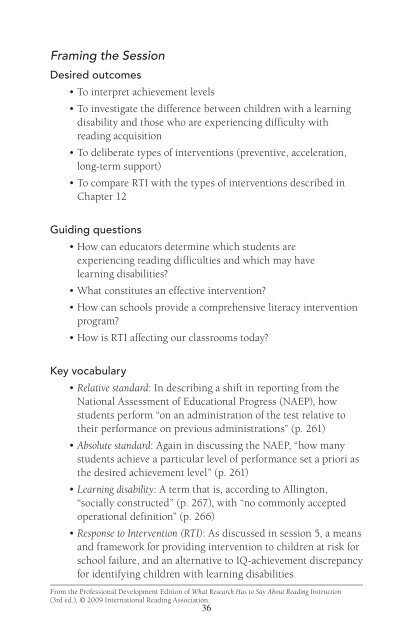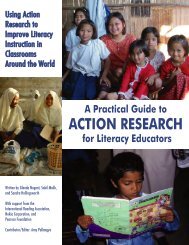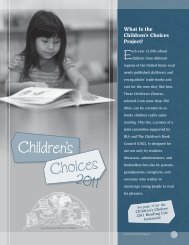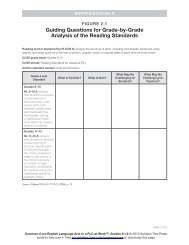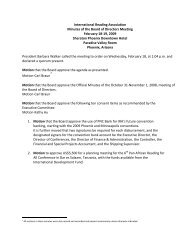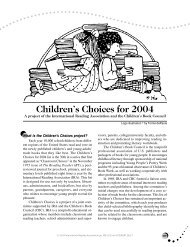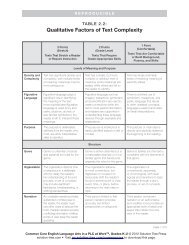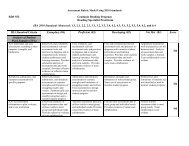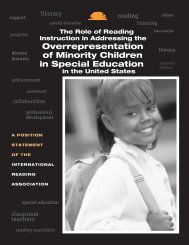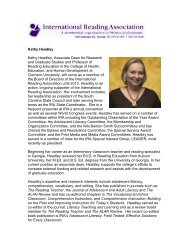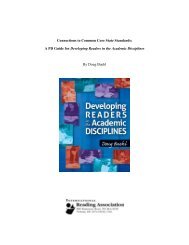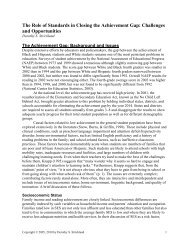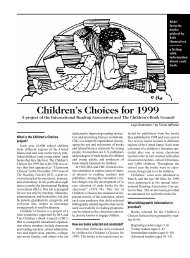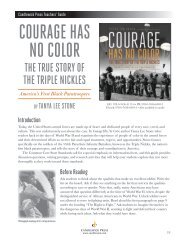What Research Has to Say About Reading Instruction - International ...
What Research Has to Say About Reading Instruction - International ...
What Research Has to Say About Reading Instruction - International ...
You also want an ePaper? Increase the reach of your titles
YUMPU automatically turns print PDFs into web optimized ePapers that Google loves.
Framing the Session<br />
Desired outcomes<br />
• To interpret achievement levels<br />
• To investigate the difference between children with a learning<br />
disability and those who are experiencing difficulty with<br />
reading acquisition<br />
• To deliberate types of interventions (preventive, acceleration,<br />
long-term support)<br />
• To compare RTI with the types of interventions described in<br />
Chapter 12<br />
Guiding questions<br />
• How can educa<strong>to</strong>rs determine which students are<br />
experiencing reading difficulties and which may have<br />
learning disabilities?<br />
• <strong>What</strong> constitutes an effective intervention?<br />
• How can schools provide a comprehensive literacy intervention<br />
program?<br />
• How is RTI affecting our classrooms <strong>to</strong>day?<br />
Key vocabulary<br />
• Relative standard: In describing a shift in reporting from the<br />
National Assessment of Educational Progress (NAEP), how<br />
students perform “on an administration of the test relative <strong>to</strong><br />
their performance on previous administrations” (p. 261)<br />
• Absolute standard: Again in discussing the NAEP, “how many<br />
students achieve a particular level of performance set a priori as<br />
the desired achievement level” (p. 261)<br />
• Learning disability: A term that is, according <strong>to</strong> Alling<strong>to</strong>n,<br />
“socially constructed” (p. 267), with “no commonly accepted<br />
operational definition” (p. 266)<br />
• Response <strong>to</strong> Intervention (RTI): As discussed in session 5, a means<br />
and framework for providing intervention <strong>to</strong> children at risk for<br />
school failure, and an alternative <strong>to</strong> IQ-achievement discrepancy<br />
for identifying children with learning disabilities<br />
From the Professional Development Edition of <strong>What</strong> <strong>Research</strong> <strong>Has</strong> <strong>to</strong> <strong>Say</strong> <strong>About</strong> <strong>Reading</strong> <strong>Instruction</strong><br />
(3rd ed.), © 2009 <strong>International</strong> <strong>Reading</strong> Association.<br />
36


